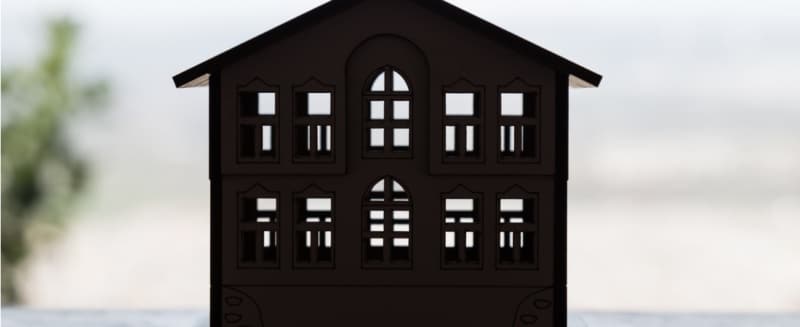If you don’t want to refinance your mortgage for free, you may have to accept a higher interest rate.
Q: I listen to your radio show frequently and wondered if you can offer advice on refinancing my home. My current lender does not offer any refinancing options for me. I have a credit score in the 800’s and a 4.8 percent, 30-year fixed rate mortgage. My mortgage balance is $163,000 and my home has an appraised value of $193,000. I purchased the home about 3 years ago for about $215,000, so the value has dropped about $22,000.
I want a better interest rate on my mortgage, but I don’t want to get an appraisal or pay much (or anything) to refinance. There are no government programs for responsible people like me. Do you have any advice or can you recommend an excellent mortgage company?
A: As we have said in the past many times, whenever you’re thinking about refinancing, you should talk to a large mortgage lender, local bank or savings and loan, and a mortgage broker to see who can give you the best deal. The deal you want to ask about is a lower rate than you’re currently paying, the same or a shorter loan term, and not much out-of-pocket.
Your first call should be to your lender to the loan retention department to chat about whether there is some internal program they’re offering to great customers like yourself whom they supposedly want to keep on the books. If they offer you something, great. If not, you can do some shopping around and then go back to them and see if you can prompt them to give you a better deal.
Most lenders will require that you have at least 20 percent equity in the home to refinance and get the best rates possible. You’re just about there. Our calculations say that you’d need about $195,000 in equity, which would mean you’d kick in a few thousand dollars and do a “cash in” refinance. While that sounds strange, the benefit to you would be huge, as you’d get a more favorable interest rate and a loan on better terms.
(Here’s how the math works: If we take the value of your recent appraisal of $193,000 and your current loan amount balance of about $163,000, the new appraisal needs to come in at around $204,000 to allow you to refinance smoothly at the best rates and best loan programs. If a new appraisal comes in at less than $204,000, you can decide to pay down your loan by $9,000 to get to the magic 20 percent in equity.)
The downside is that unless you’re trying to refinance an FHA loan, or your own lender has a special program, the new lender will need to obtain an appraisal of the home. While you purchased the home only 3 years ago, the value at that time is not relevant for purposes of your refinancing today.
Ten years ago, you could find lenders willing to modify your loan terms by giving you a lower interest rate on your loan. You might have paid a small fee to get the modification, but you would have kept your same loan terms other than a drop in the interest rate. Your monthly payments after the loan modification would have been lower.
Other than for FHA streamline refinances, we haven’t seen any loan modifications of this type for many years. Your best bet may be to find a different lender.
You don’t want to pay any fees for refinancing your loan, so you may have to accept a higher interest rate in exchange for the lender absorbing the costs of the refinancing. Loan refinancing fees can vary from state to state. In what we would consider a lower-cost state, you might only pay around $1,000 to $1,500 to refinance a loan, while in a higher cost state, the lender fees could be double or triple those fees.
Be careful. You need to differentiate real costs from fees you might have to pay relating to your loan. If you have to deposit funds with a lender for the payment of real estate taxes, it’s unfair to bundle the deposit of those funds as a “closing cost.” The deposit is truly money set aside for the future payment of your real estate taxes. The same is true for the payment of home insurance premiums and prepaid interest on your loan.
If you close your loan on the 15th day of a month, your lender will pre-bill you for the interest on your loan from the 15th day of the month through the end of the month. While you might not want to come to the closing and “pay” money, in many instances, you will have to come to the closing and pay these amounts. Again, we don’t consider these amounts as true costs to close the loan, but rather payments you’d have to make anyway.
If the lender is willing to give you a higher interest rate and cover these other closing costs, then you have to decide whether you are better off with the higher interest rate or not. If you never refinance the loan again and keep the loan for the next 30 years, you’ll end up paying much more over that time for those closing costs than if you had just paid them now. But that’s a decision only you can make.
Finally, you’re right. We can’t think of a government program you’d qualify for where you can refinance for free.
But if it makes you feel better, the government programs that do allow homeowners to refinance their homes without consideration of their current home’s value, carry a significantly higher interest rate than you’ll get with a conventional refinance with 20 percent equity.
[amazon_link asins=’1524763438,0812927419,0609809334,0812925319′ template=’ProductCarousel’ store=’thinkglink-20′ marketplace=’US’ link_id=’263f79d2-2c75-11e8-958c-37ca7adc24e7′]







Leave A Comment